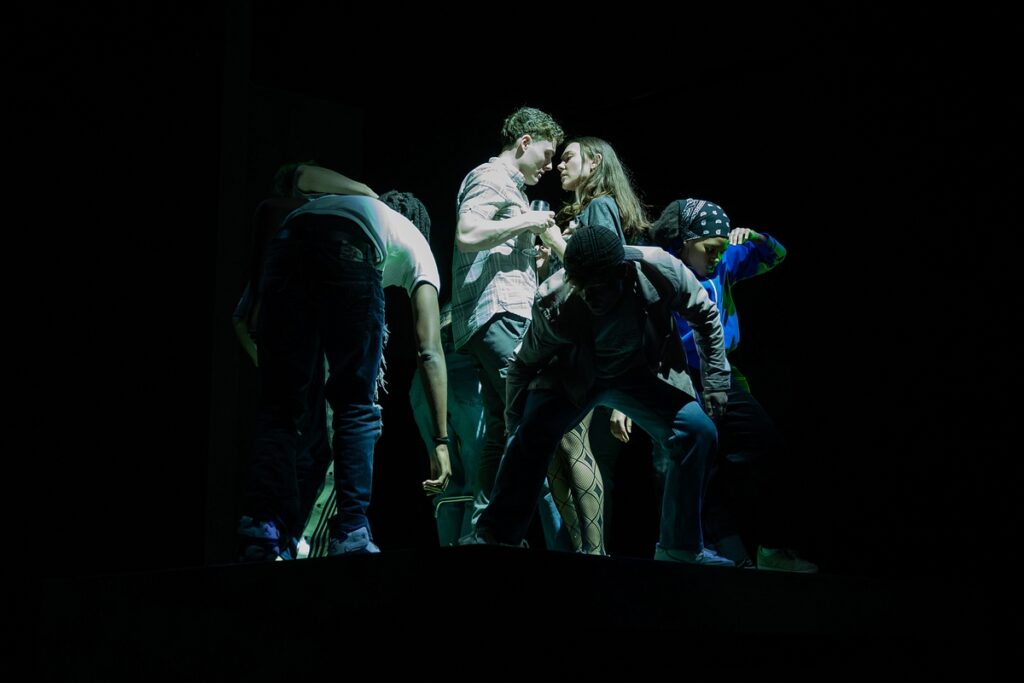
Without Walls is a pioneer and trailblazer of exceptional outdoor art. From research in development to working with leading outdoor festivals, including Norfolk & Norwich Festival, Greenwich+Docklands International Festival and Brighton Festival, the organisation is fundamental in developing, funding and platforming a wide variety of work together in the UK.
Since its formation in 2007, Without Walls has developed and toured over 200 new shows by UK companies and supported the Research and Development of over 70 projects. Without Walls commissions have toured widely both in the UK and internationally across 22 countries.
We caught up with Ralph Kennedy, Director of Without Walls, to find out more about the work the organisation is doing.
Q&A with Ralph Kennedy
Without Walls is one of the UK’s leading outdoor art and performance specialists; what does outdoor art offer us as a society/individual vs. indoor?
In recent years, cities and towns across the country have experienced a decline, largely fueled by changes in consumer behaviour and reductions in local authority funding, which has led to the disappearance of essential community spaces like theatres, libraries and social clubs. It’s evident that our relationship with, and utilisation of, public and civic spaces has shifted, and not necessarily for the better. Outdoor arts play a critical role in reversing this trend, allowing communities to reimagine the places where they live and work. Festivals in the Without Walls network offer the chance for people to come together, engage with their surroundings, and foster a sense of connection and creativity.
I’ll give you an example. Soon after joining Without Walls I attended a festival in a small town where Autin Dance Theatre was performing Out of the Deep Blue, a show that features a giant puppet ‘sea creature’ called Eko. Before the performance started, Eko walked through the town centre, joyfully playing with the crowds that gathered to see him and leading them to the performance site. Two teenagers walked transfixed next to me. One turned to the other and said ‘This is the best thing that has ever happened here’. Seeing people genuinely excited about seeing art in the places where they live and work is an incredible feeling. Audiences across England resonate with outdoor work because it creates moments of excitement, wonder and pride on their doorsteps.

Without Walls brings theatre and performance to various towns and cities around the country. How vital is the community element of the organisation?
It’s the heart of what we do. Community is a focus for all the festivals in the network. All the work which we commission and present appears in public spaces, and almost all of it is free to access. We’re really driven by this. A lot has changed in our cities, towns and villages over the last ten years. Shops and pubs are closing at an incredible rate and I worry we are losing the things and places that used to connect us as communities. I hope the work Without Walls creates can help reverse this by bringing communities together to experience new things in the places where they live and work.
Can you tell us a bit about the survey that Without Walls commissioned with The Audience Agency – what was the aim?
It’s vital for us that network partners understand how our work together speaks to audiences across England. Separately to Illuminate, we wanted to work with The Audience Agency to provide a bespoke report that gives us detailed insights into our audiences, helping us benchmark our progress in diversifying our reach. We find tremendous utility in understanding our impact as a commissioning network but it’s even more important that this is reflected back to partners.
It’s a highly detailed report that provides a large data set which we can use as a starting point for future discussions and inform our planning for the next year.
What were the biggest takeaways from the survey, and how have these insights informed the programming for 2024 and beyond?
The survey certainly gave us a deeper understanding of our audiences, including their backgrounds, motivations, and preferences. One of the most significant insights was the discovery that we are reaching younger audiences and audiences that attend fewer cultural events than traditional venue based artform This finding emphasises the agility and relevance of outdoor arts, and the critical role it plays in reaching new audiences, especially in underrepresented areas.
Moreover, the survey highlighted the growing demand for diverse, inclusive programming that speaks to different communities across England. In response, our 2024 programming has focused on creating experiences that are not only accessible but also representative of the diverse cultures and identities that make up our society.
The survey results revealed that, for 15% of respondents, seeing a Without Walls festival was their first time attending an arts and culture experience – what does it say to you about the importance of outdoor arts?
It’s hugely significant as we are seeing less and less investment in arts and culture across the country, with local authority and ACE funding cuts, which are hugely impacting partners and artists in being able to present work. We exist to commission and tour the best in outdoor arts and to see audience reach continue to grow, despite these challenges, is encouraging.

Without Walls festivals have seen a slight increase in the proportion of audiences identifying as D/deaf or disabled – what are you doing as a company to ensure inclusivity and accessibility for your programme?
Without Walls is committed to inclusive working, ensuring there is representation and development for artists who identify as d/Deaf, disabled, neurodivergent, and learning disabled, as well as providing an accessible experience for audiences at the outdoor arts festivals we work with.
We know that 16 million people in the UK identify as disabled or having an impairment. We want the outdoor arts sector to represent the communities our festivals serve. We have made a conscious effort to ensure that all our programming is as accessible as possible. We work closely with artists to ensure their performances are adaptable to various audiences, including D/deaf and disabled communities. This year, we supported artists to offer captioning, BSL interpretation and sensory tours. We’re also prioritising better marketing and communication around access needs, so that everyone feels comfortable attending a Without Walls event.
The Without Walls 2024 summer programme saw a fantastic spread of festivals, from Brighton Festival and Norfolk & Norwich Festival in the South to Stockton International Riverside Festival and Just So Festival, Cheshire in the North – how important is the regional spread of your work and the WW message?
The regional spread of our work is crucial to our mission. We believe that everyone, regardless of location, should have the opportunity to experience high-quality, transformative art. By presenting festivals across England, from cities to smaller towns, we aim to ensure that no community is left out of this shared cultural experience.
Outdoor arts provide an opportunity to reach people who may not have access to traditional arts venues, and the geographic diversity of our programming helps us engage with different communities and regions in a meaningful way. It’s important that the Without Walls message—that art is for everyone, everywhere—is reflected not just in the content of our work, but also in its delivery across England.
Any highlights from the 2024 summer programme?
There were so many standout moments from this year’s programme, but a few highlights include Bamboo by NoFit State Circus. In this thrilling show, performers used Bamboo to build temporary, flexible structures before treating audiences to thrilling circus performances.
Another highlight was Closer to my Dreams by Mancunian dancer and choreographer, Chad Taylor. This tender and moving show explored Chad’s life experience as a young Black man in Manchester and his determination to follow his dreams of being a professional dancer. Music and narrative are provided on headphones rather than over a PA, creating a wonderful sense of unity and intimacy with audiences.
A final highlight for me was The Journey by Perhaps Contraption, a musical walkabout show that embedded visual vernacular in order to make the show more accessible for deaf and partially hearing audiences. Each of these highlights showcases the vibrancy and potential of art in public space, and reflects the diversity and innovation that Without Walls brings to communities across the country.














